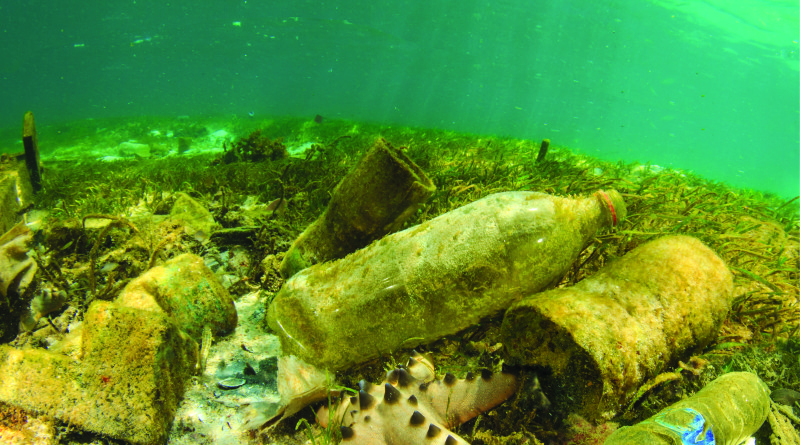State could require study to identify primary sources of ocean plastic pollution
Assembly member’s bill proposal hopes report would yield possible solutions.
SACRAMENTO — The California Ocean Protection Council could be required to study the sources of plastic pollution in our ocean and produce its findings by Jan. 1, 2019, ultimately giving policymakers direction in pursuing solutions-oriented action to clean up local and regional waters.
Assembly member Richard Bloom (D-Santa Monica) introduced a bill to address ocean waste and plastic pollution along California’s coast. The proposal, Assembly Bill 1594 (AB 1594) would rely upon completion of a mandated study to drive future policy and strategy decisions to prevent or reduce plastic pollution.
The sources of plastic pollution, according to AB 1594, would be “determined by an analysis of statewide beach cleanup efforts.”
Bloom’s proposal would include recommendations for legislative action and other strategies the state could possibly implement to reduce plastic pollution at state beaches and in ocean waters.
AB 1594 would, according to Bloom’s proposal, also “make related legislative findings and declarations regarding the need to prevent and clean up ocean waste, including plastic pollution.”
A substantial amount of plastic is not being recycled, instead being found in local and regional waterways, according to Bloom’s proposal.
“Plastic and packaging waste represents a significant and fast growing component of the state’s waste stream. California disposes of more than three million tons of plastic packaging waste annually,” language in Bloom’s bill stated. “With the sole exception of plastic beverage containers covered by the California Beverage Container Recycling and Litter Reduction Act … little of generated plastic is currently recycled. Excluding beverage containers, less than 5 percent of plastic packaging is currently recycled.”
The amount of plastic in the water could outweigh fish within the next 33 years, according to AB 1594.
“According to a report published by the World Economic Forum and the Ellen MacArthur Foundation, there could be more plastic than fish, by weight, in the ocean by 2050, if we continue on our current track,” Bloom’s bill stated. “Nonbiodegradable plastic litter poses a real and growing threat to water quality and the marine environment.”
AB 1584 acknowledged stormwater runoff carrying plastic litter is increasingly threatening aquatic and marine environments.
A member of San Pedro Yacht Club recently shared photos with The Log of marine debris brought into Los Angeles Harbor from a nearby channel immediately after a late February rainstorm. Plastic, wood and other forms of trash are clearly visible in the water.
The National Oceanic and Atmospheric Administration (NOAA), citing data from the Environmental Protection Agency (EPA) and Woods Hold Sea Grant in a recently published survey on marine debris, stated plastic beverage bottles could take at least 450 years to decompose. Decomposition is defined by NOAA as an item becoming so microscopic in size it is no longer visible.
A plastic grocery bag could take up to 20 years to decompose, according to the NOAA survey.
Similar data was shared on an infographic published in the Dec. 30, 2016 issue of The Log newspaper.
NOAA’s survey stated the top marine debris items, in rank order, are cigarette butts, food wrappers, plastic beverage bottles, plastic bottle caps, straws/stirrers, plastic grocery bags, glass beverage bottles and “other” plastic bags (such as garbage, newspaper and sandwich bags).
A 2010 report cited by California’s Water Board found 73 waterways within the state had impaired water quality due to large amounts of trash.
AB 1594 was introduced Feb. 17 and will be heard in committee on March 21.


